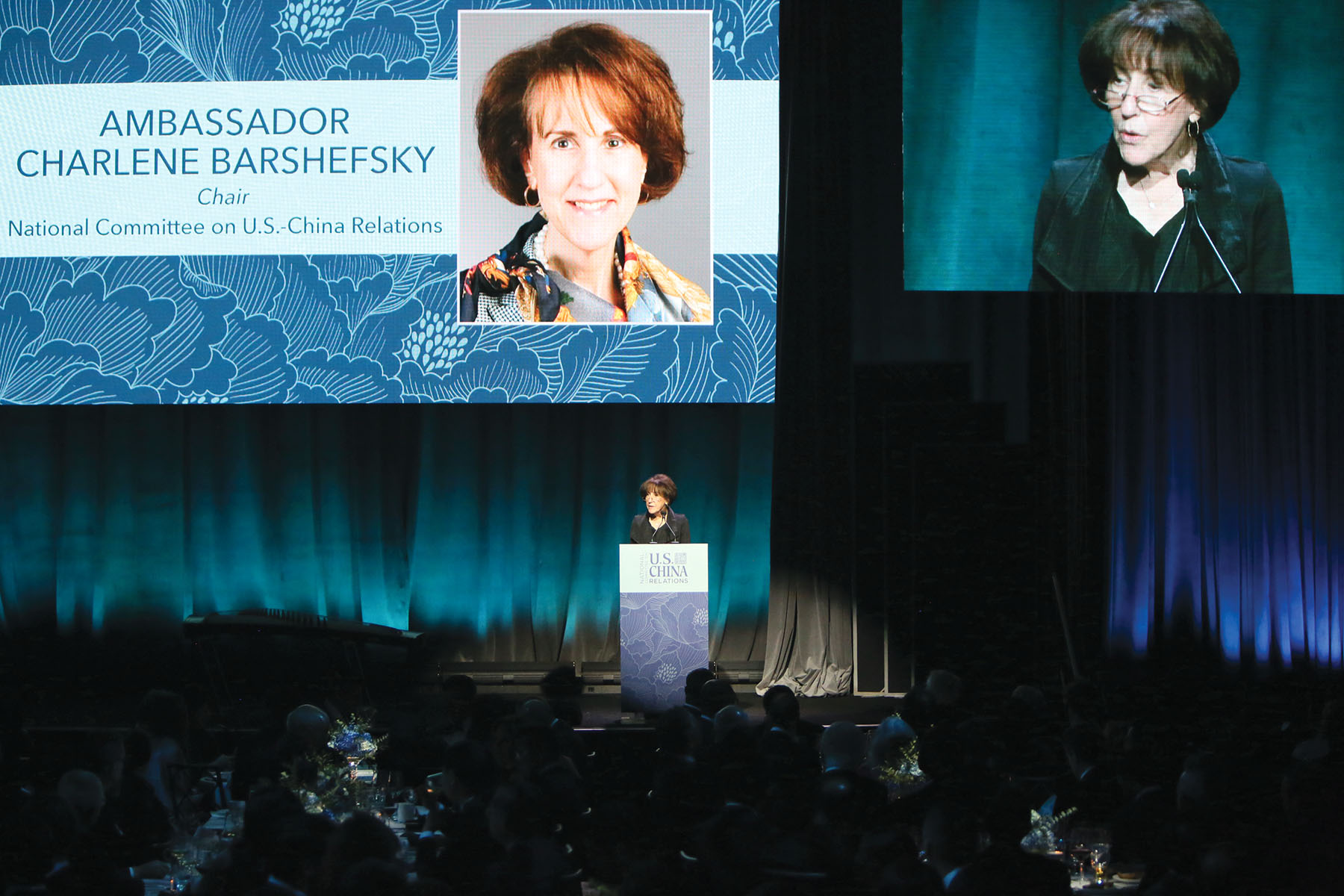New York event sees speakers urge healthcare collaboration, dialogue

US and Chinese political and business leaders have voiced hopes for a more stable relationship between the two countries amid rising tensions between the two sides.
At the annual gala of the National Committee on United States-China Relations in New York on Oct 14, the committee’s president, Stephen Orlins, said he hoped the clear skies in the city after days of storms would be “symbolic of what’s going to happen with US-China relations”.
“It’s absolutely unquestionable to say the world is chaotic — war, economic dislocation, political torment or turmoil, weather that we have never seen before … but we at the national committee know that at times of great challenge we can make progress. We can make a difference. We can make progress if we unite more forces that can be united.”
Orlins emphasized the collaboration between the healthcare industries in the US and China. “It is more important than ever that China and the United States work together to address health issues facing both their populations and the world. The evidence is clear that such collaboration has helped save lives.”
At the gala, the New York-based committee honored Albert Bourla, chairman and chief executive of the pharmaceuticals company Pfizer, for his leadership in advancing global health and promoting China-US collaboration.
China’s progress in biopharmaceutical innovation has been remarkable and is reshaping the global competitive landscape, Bourla said.
“Chinese biotech firms accounted for nearly one-third of all large pharma drug licensing deals last year, a major shift in where innovation is sourced,” he said.
Bourla also spoke of the long history of scientific collaboration between China and the US, saying it has demonstrated the two countries’ ability to overcome differences and work together for the common good.
“When we look to the past, I think we can be encouraged. The United States and China have a long history of collaborating in science and healthcare, and despite the fact that there were always ups and downs in their relations, eventually they found a way to work together.”
US and Chinese scientists have “done remarkable work in … preventing and treating infectious diseases such as tuberculosis, yellow fever, influenza, HIV, and Ebola”, he said.
“The exchange of scientific knowledge and trust-building has become a model for global health partners. It is a powerful example of science in the service of the community, the service of the world.”
The lessons of collaboration remain vital today, Bourla said.
“We must draw on these lessons again. Cancer, Alzheimer’s, heart disease, rare genetic disorders, they don’t recognize borders. Neither (do) solutions.
“We must be committed to harnessing the world’s best science wherever it resides. Usually, collaboration brings the best science.”
Charlene Barshefsky, the committee’s chairwoman and a former US trade representative, said at the gala that progress is rarely linear, and the most recent news underscores that the US and China are each trying to shore up their economies and ensure their national security. The way they are doing this is not always the most productive, she said.
“There’s no question we will find common ground on every issue. Structural issues remain outstanding, a variety of points of contention between the two sides. But I take great encouragement and hope in the notion that leaders of great countries recognize the value of communication over conflict, and will always work to that end.”
Amid all this disruption, “we’re going to see the same, more positive pattern emerge”, she said. “The world depends on stable US-China relations.”
Beijing’s top envoy in Washington also called for a healthier bilateral relationship.
“As the most important bilateral relationship in the world, the China-US relationship bears on not only the well-being of our two peoples, but also the future of the entire world,” Xie Feng, China’s ambassador to the US, said at the gala.
“A tariff war or trade war will serve no one’s interest in the end, and equality, respect, and mutual benefit represent the only right way to properly handle differences.”
China “does not want to fight such a war, but neither will we sit idly by when our rights and interests are harmed, and the international economic and trade rules as well as the multilateral trading system are undermined”, Xie said.
Xie called for “real action and pool synergies to advance China-US exchanges and cooperation”.
“The China-US relationship could not develop without strategic guidance from the top, nor could it flourish without the support of the people,” he said, underscoring the strength of the business collaboration between the two countries.
The key to a sound state-to-state relationship “lies in affinity between the people”, he said.
“In this turbulent and fluid world, we have a thousand reasons to get the China-US relationship right, and no single one to mess it up.”
Contact the writers at minluzhang@chinadailyusa.com


